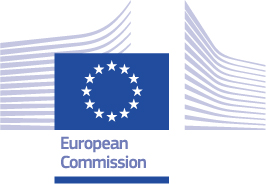UOC receives €2.8 million to develop international doctoral programme on social impact of ICTs
The IN2TIC programme will last for 60 months, and will attract 24 predoctoral researchers from all over the worldIN2TIC is supported by eleven partner institutions, including renowned universities and companies in the tech sector
The Universitat Oberta de Catalunya (UOC) has been awarded €2.8 million in funding from the Horizon Europe - Marie Skłodowska-Curie COFUND programme to organize IN2TIC (Interdisciplinary International Training on ICT for Developing Societal Impact), an ambitious international and interdisciplinary doctoral programme to examine the effects of information and communication technologies (ICTs) on society.
IN2TIC will start on 1 January 2026, continue for 60 months, and involve 24 predoctoral researchers from all over the world. The selected candidates will carry out a 36-month stay in order to train to become researchers able to address complex challenges related to the impact of ICTs in the social, economic, political and cultural fields. IN2TIC focuses on interdisciplinarity as a cornerstone of research and education, promoting international and intersectoral collaborations.
A pioneering programme in research on the social impact of ICTs
Digitization has radically transformed all areas of everyday life, from education and health to the economy and politics. IN2TIC was created in order to train a new generation of researchers capable of understanding, analysing and evaluating the impact of ICTs in these areas.
“Obtaining this European funding shows the strength of what we can offer, and the UOC's ability to attract high-level research talent”
"Our goal is to produce high quality knowledge about the impact of technology on society, and to train highly skilled researchers who can offer innovative solutions to major global challenges," explained David Masip, director of the UOC's Doctoral School and coordinator of the project.
The programme is based on excellent supervision, a strong emphasis on transferable skills and exposure to the non-academic sector, with international stays tailored to maximize the impact of research and to raise the researchers' profile. Special emphasis is also placed on monitoring and developing personal career plans for the doctoral students.
A network of international alliances to promote interdisciplinary research
IN2TIC is supported by eleven partner institutions, including seven universities and four tech companies that will facilitate the transfer of knowledge between the academic sector and the business world. The partner universities include the Alexander von Humboldt Institute for Internet and Society,Germany, the University of Groningen,Netherlands, the Institut Polytechnique de Paris, France, Cardiff University, United Kingdom, Concordia University,Canada, and the University of Minho, Portugal. These collaborations will enable the doctoral students to carry out research stays in international centres and tech-sector companies.
IN2TIC is part of the UOC's range of doctoral programmes, which includes six UOC programmes:
- Education and ICT (E-learning)
- Society, Technology and Culture
- Health and Psychology
- Humanities and Communication
- Law, Politics and Economics
- Network and Information Technologies
These programmes share an interdisciplinary approach that analyses the role of ICTs in the various fields of knowledge, in line with the UOC's innovation and research strategy. They are currently 405 active students on these programmes.
A boost for the UOC's research and international profile
The UOC, a pioneer in online education with a robust track record in research on the digital society, is leading this project in order to strengthen its position as a global leader in research on the impacts of technology on society.
"Obtaining this European funding shows the strength of what we can offer, and the UOC's ability to attract high-level research talent," said UOC Rector Àngels Fitó. "Through IN2TIC, we're not only making progress with research on the digital society, but also strengthening our commitment to training the academic and professional leaders of the future."
Xavier Vilajosana, UOC Vice Rector for Research, Knowledge Transfer and Entrepreneurship, highlighted the project's strategic importance: "IN2TIC takes us to a new stage of maturity in our doctoral programmes. This project will let us consolidate our standards of excellence in accompanying our researchers at a key stage of their development as scientists."
The programme forms part of the UOC's work on research and innovation, work which is committed to promoting interdisciplinarity and enhancing the social impact of research in five main areas: e-learning, ethical and human-centred technology, digital transitions and sustainability, critical culture, and digital health and planetary well-being.
UOC R&I
The UOC's research and innovation (R&I) is helping overcome pressing challenges faced by global societies in the 21st century by studying interactions between technology and human & social sciences with a specific focus on the network society, e-learning and e-health.
Over 500 researchers and more than 50 research groups work in the UOC's seven faculties, its eLearning Research programme and its two research centres: the Internet Interdisciplinary Institute (IN3) and the eHealth Center (eHC).
The university also develops online learning innovations at its eLearning Innovation Center (eLinC), as well as UOC community entrepreneurship and knowledge transfer via the Hubbik platform.
Open knowledge and the goals of the United Nations 2030 Agenda for Sustainable Development serve as strategic pillars for the UOC's teaching, research and innovation. More information: research.uoc.edu.
Experts UOC
Press contact
-
Leyre Artiz


